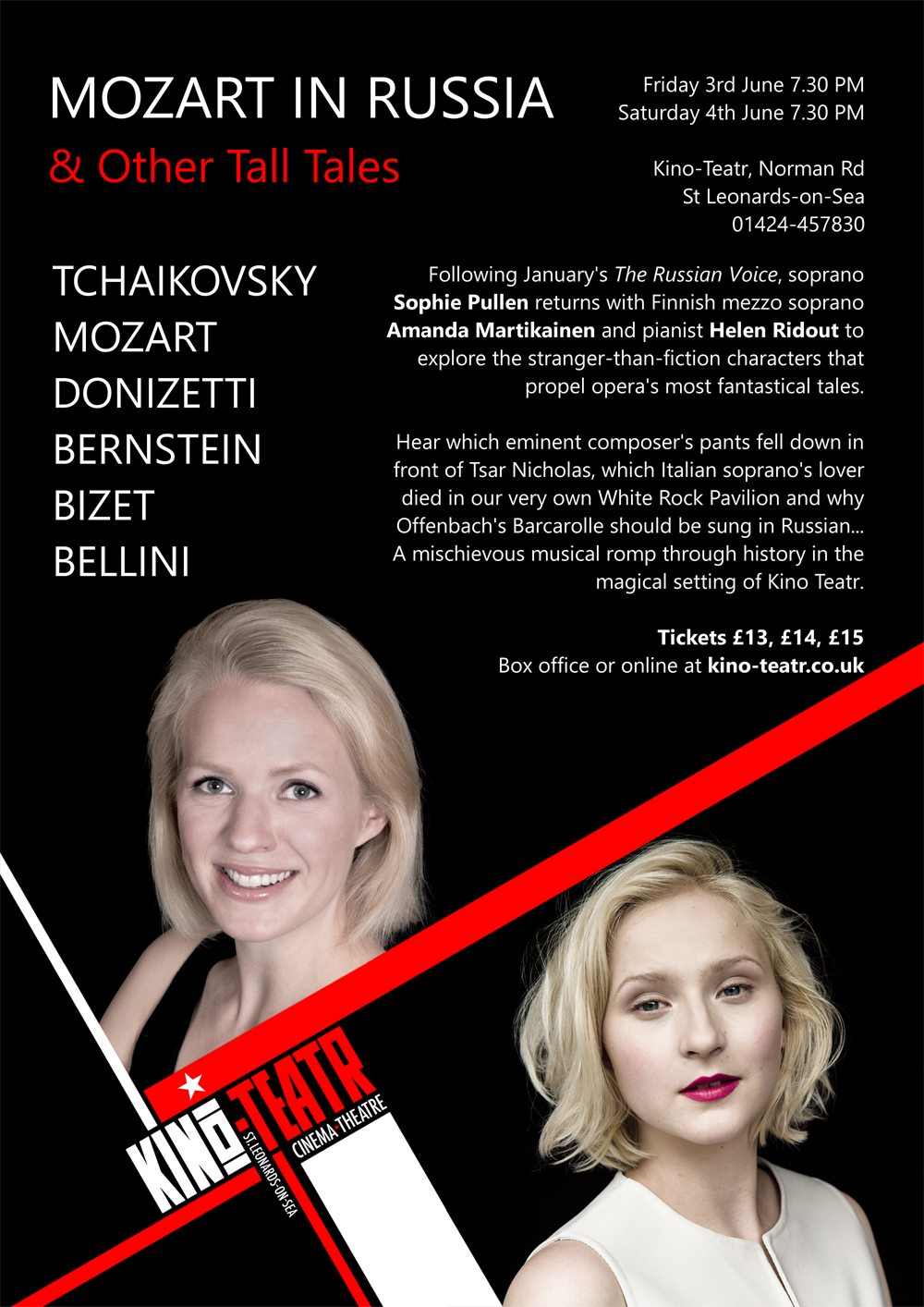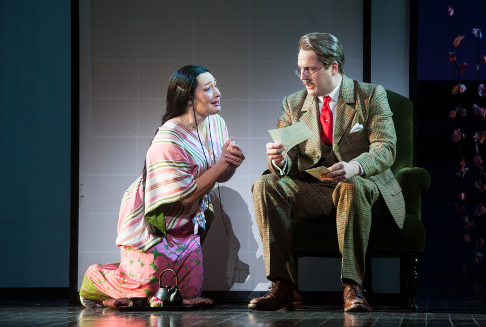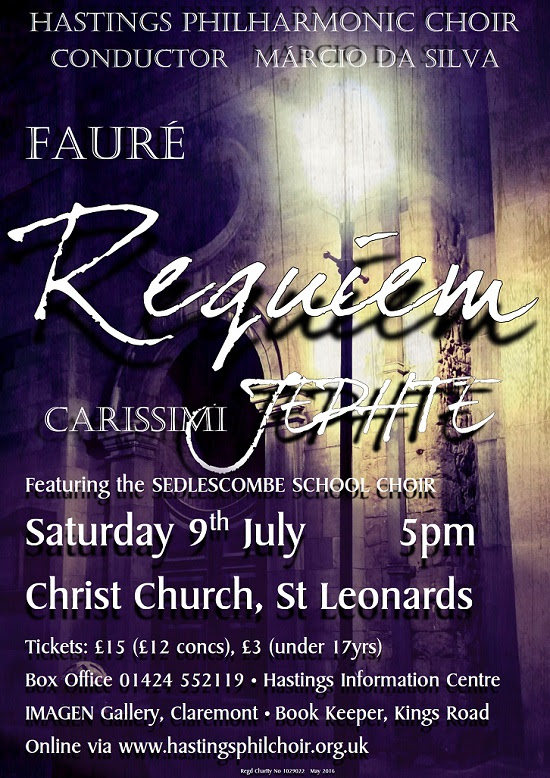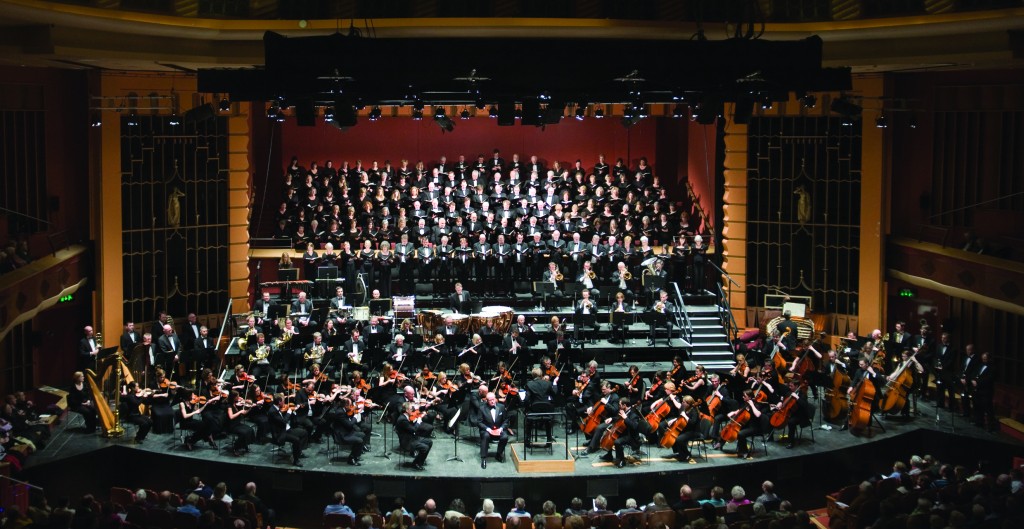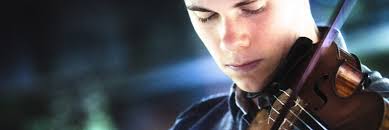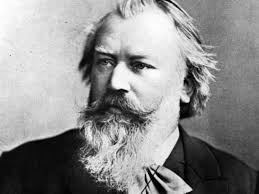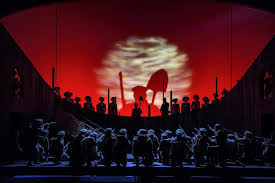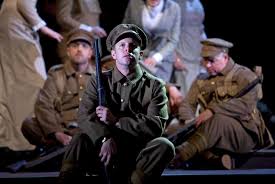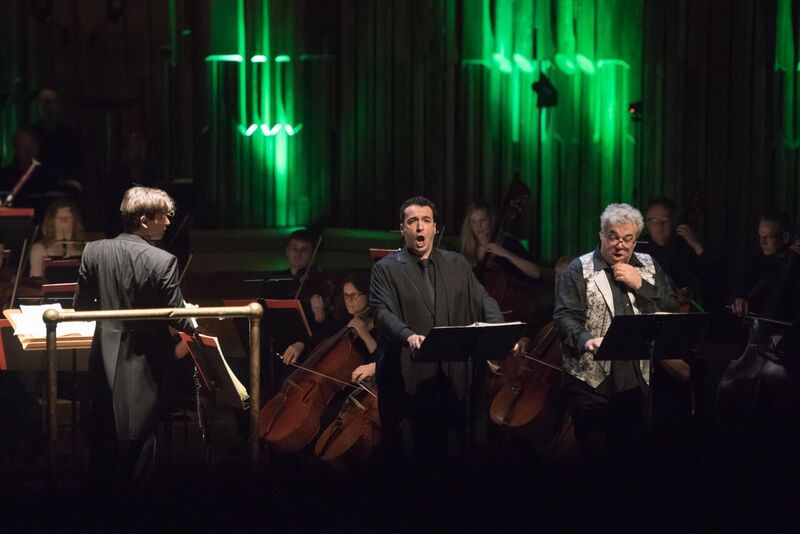Monthly Archives: May 2016
ENO: Madame Butterfly
London Coliseum, 25 May 2016
This is the sixth revival of Anthony Minghella’s production of Madame Butterfly at the London Coliseum and musically it was very sound. Sir Richard Armstrong takes a robust approach to the score which drives it fast and encourages a wide range of orchestral colour. If it tended at times to almost drown out the soloists, particularly early on, this was a minor complication in the face of fine playing.
On stage there was much to commend the soloists. David Butt Philip as Pinkerton has a gauche charm and the naivety of a very young man out of his depths. He threw off Dovunque al mondo with panache and its moral laxity was well picked up by George von Bergen’s world-weary Sharpless. If anything, it was Sharpless who was the most convincing character on stage and the dramatic intensity dropped when he was not present.
Rena Harms has the voice for Cio-Cio-San and almost convinces us she is only fifteen. The love duet flowered strongly though frequently placing the soloists well up-stage did not help.
As noted above this was the sixth revival of this production though, strangely, it was the first time I had seen it. I realise now why I had been avoiding it. As a friend noted this was opera for people who don’t like opera. There is no attempt to develop characterisation or intimacy. The start of the love duet is fine – the image closely controlled so that we focus on the characters. Then suddenly they are in a vast black void surrounded by floating paper lanterns and a constant rain of cherry blossom. Think Disney restaging Chu Chin Chow. They hardly sing to each other and there is no dramatic tension, still less any erotic frisson which is what Puccini intended. I accept I am in a minority because those around me were obviously thoroughly enjoying it, but it is surely dangerous to encourage audiences to think of a work like this, which can be emotionally devastating, as simply a pretty entertainment.
St Peter’s Church, Bexhill-on-Sea
Coffee Break Concerts 2016
Saturday 16 July, 10.30am
Orb & Sceptre – Anthony Wilson (organ)
Saturday 10 September, 10.30am
John Ross (organ)
Saturday 12 November, 10.30am
The English Romantic song
All concerts last around 40 minutes
They are held in the Community Centre or the Church
Refreshments available
Admission free, with a retiring collection
All welcome to enjoy some lovely music
Evening concerts
Saturday 11 June 2016, 7pm
Daniel Cook (Westminster Abbey)
Tickets on the door – £10, £5 concessions
Saturday 18 June 2016, 7pm
David Price (ex-Norwich RC Cathedral)
Admission Free – Retiring Collection
Friday 24 June 2016, 7.30pm
The Hollow Crown
Admission £10 – including refreshments
Saturday 25 June 2016, 7.30pm
St Peter’s Choir – Petertide Concert
Admission free – retiring collection
Sunday 10 July 2016, 3pm
Kristian Thorkildsen – Cello plus
Admission £5 – refreshments available
St Peter’s Church, Church St, Bexhill TN40 2HE
Further details available from directorofmusic@stpetersbexhill.org.uk
07729 206721
St Peter’s Church, Bexhill-on-Sea
Hastings Philharmonic Choir
The Dream of Gerontius
Brighton Festival Chorus, CBSO,
The Dome, Brighton, 22 May 2016
Without any doubt the heroes of this performance were Brighton Festival Chorus. Singing from memory, they brought a bite and clarity to the score which is rare these days. The snarl and rasp of the demons, the purity of the angels, the hushed whispers of the family around the bed – all were perfectly characterised with dynamic range and beauty of line to enhance the impact of the text. That of course was the other real benefit of singing without the score. The chorus sang straight at us and voices were not reflected from the pages in their hands, doubling the impact and clarity.
Edward Gardner took the opening sections at a slow pace yet maintained the intensity of Elgar’s writing. This allowed the narrative to unfold in a natural way and encouraged a sense of meditation throughout. Robert Murray was somewhat strident as Gerontius in the first half, his Firmly I believe having something of a swagger to its delivery, but he was more reflective in the second half and his approach to the throne was impressive. Alice Coote is now a familiar Angel but none the less welcome. The relative intimacy of the Dome allowed her to spin off some very delicate hushed lines to great effect, but also made the exultant Alleluias thrilling.
Matthew Rose made the most of Go Forth and the chorus supported him with enthusiasm. He was equally impressive in the more demanding emotion of the Angel of the Agony, a section which Edward Gardner crafted with great skill.
The CBSO know this score well but always sounds fresh to it. A wonderful evening and a full house.
Maidstone Symphony Orchestra
Mote Hall, Maidstone, 21 May 2016
What a splendid end to a splendid season! The all Russian programme looked sound on paper and proved to be so in execution. Borodin may have technically been an amateur but there is nothing un-professional about his ability to spin a musical line or summon up an oriental atmosphere. Maybe some of the colour we hear in the overture to Prince Igor has as much to do with Glazunov who completed the work as with Borodin but the final effect is as highly charged as one could wish for. Alongside the arch romanticism of the melodies we had the fine nuances of tone colour which demonstrated the strengths of the orchestra’s individual departments, and on this occasion highlighted some rousing fanfares.
If Prokofiev’s Second Violin Concerto takes a little getting used to it is, as Brian Wright noted in his introduction, well worth the effort. The second movement in particular is immediately accessible to anybody who knows Romeo & Juliet and there is a great deal of the ballet latent within this score.
Callum Smart showed a deep and intimate understanding of the work, bringing out the contrasts between the sudden moments of gentle lyricism and the brashness which comes to a head in the final movement. Quirky and challenging it may be, but with a performance as engaging as this, it more than justifies its place in the season.
Brian Wright argued that from his point of view Tchaikovsky’s Fifth Symphony is his finest. On the strength of this performance he could well be right! This was surely the best playing we have heard all year and a tribute to the quality of the orchestra both as an ensemble and as individual soloists. The limpid clarinet solo at the start, the subtle vibrato from the solo horn in the second movement – suggesting a slight hesitancy, a whistling in the dark – and the lovely bassoon lines, all reflected the individual quality of the players. At the same time the precision and warmth of the strings was better than I recall it before. Perhaps the exigencies of rehearsing the Mahler had made a deep impact?
The new season opens on Saturday 15 October 2016. I am sure you will be there.
Hastings Philharmonic Choir
Christ Church, St Leonards, Saturday 14 May 2016
The church was full well before the start and late-comers were looking for places at the sides which was an excellent omen for a programme which might not be quite such a crowd pleaser as more familiar works. Brahms’ Requiem is better known in parts than as a whole, and is a genuine challenge for the best of choruses. That HPC did so well is a tribute not only to their conductor but also the hours of effort it must have taken to realise this level of musicality.
They had opened the evening with a rarity – Brahms’ setting of Goethe’s Gesang der Parzen. The rich acoustic helped the romanticism of the setting and the top sopranos excelled themselves in the accuracy of their pitch and impact of their attack. This was true later of the men who are now a force to be reckoned with. The many exposed passages in the Requiem were supported with virile sound and clean lines. That the text often failed to communicate was more a fault of the acoustic than the choral singing.
The second movement of the Requiem brought us clean sweeping crescendi and there was a real joy to the end of the third movement. The lush harmonies of Wie lieblich sind deine Wohnungen were well found and there was enthusiasm in the final pages of the sixth part. It was a pity that neither of the solo parts had the presence or vocal weight to ride the orchestral and choral forces.
Between these two works we heard Sibelius’ violin concerto with Aysen Ulucan as soloist. She certainly has the technical skills for the work but the slow tempi meant that often it lacked the fire and attack the work can provoke. The orchestral forces were certainly un-phased by the challenge and the brass were particularly powerful and steely in their fanfare-like outbursts. Perhaps Marcio da Silva should bring us an evening of purely orchestral music from the Ensemble OrQuesta – it would certainly be worth hearing.
Hastings Philharmonic Choir can next be heard on Saturday 25 June at St Mary in the Castle with a programme of romantic music for mid-summer.
WNO World Premiere of Iain Bell’s In Parenthesis
Wales Millenium Centre, Friday 13 May 2016
There was nothing unlucky about this Friday-the-thirteenth. WNO was celebrating its Seventieth Birthday with the premiere of Iain Bell’s In Parenthesis. The text by David Antrobus and Emma Jenkins is drawn from the epic poem by David Jones, himself a survivor of the attack on Mametz Wood a hundred years ago. However, this is no piece of historical re-enactment for the poem draws on Welsh Saga literature to frame the narrative and to find for us, perplexed witnesses of the events, a way to make sense and even find reconciliation.
Few new operas these days have such a profoundly moving starting point and the text itself is masterly in its avoidance of operatic pitfalls. As such the movement from ethereal chorus to men on the march is made effortlessly and the characterisation is succinct but frequently profound. The strong cast draws on a number of very familiar faces, amongst whom Graham Clark’s Baldric-like Marne Sergeant and Donald Maxwell’s splendid Dai Greatcoat are outstanding, though the balance of individuality against the overriding importance of the idea of the group is never lost. For this, Iain Bell’s score is heavily responsible. He is not afraid of writing substantial choruses for both the Dryads and the regiment – choruses which are forceful and tuneful at the same time without ever seeming derivative. The new tunes he creates for familiar songs, the warmly moving setting of Sosban fach and the final overwhelming effect of the Salve Regina for women’s voices, point to a deep understanding of how opera functions and can do so without needing to break any musical rules along the way.
If the choral writing is splendid, so also are the lyrical lines for the solo parts. Andrew Bidlack has the high tessitura for Private Ball and his many brief solos have the lyricism and beauty the poem expects. The character is poised somewhere between Peter Grimes and Albert Herring – brash and clumsy at first but later having the spiritual insight of Grimes even when surrounded by danger and chaos. The pub scene which opens the second half is reminiscent of the scene after the storm in Britten’s opera, and has the same balance of warm humanity and a cosmic essence which takes us literally into a different world.
The final scene is the most moving. All but Ball are dead but where most operas would end with a dirge for the dead, here we meet transformation. The dark, often bleak, skies are hidden behind a lush spring tree in full bud. The Queen of the Wood, the versatile Alexandra Deshorties, brings fertility back to the earth and regeneration where there was despair. It is a hope beyond hope and one which is both moving and convincing.
David Poutney returns to good form in mounting this production and draws exemplary performances from his cast. It is superbly lit by Malcolm Rippeth in an un-fussy set from Robert Innes Hopkins.
It was equally pleasing to welcome back Carlo Rizzi into the pit and to note he will also be conducting Cav & Pag as part of the summer season. His sensitivity and rapport with his singers is unfailing, and he showed absolute respect for them and the work itself.
There are more performances in Cardiff until 3 June when the production moves to Birmingham and then for two performances at the Royal Opera House. Do catch it if you can. Let us hope it will return again in the not too distant future – a work of this quality should not be lost.
Opera Rara: Bellini; Adelson e Salvini
Barbican Hall, Wednesday 11 May 2016
It is not so much the opportunity to rediscover a forgotten masterpiece as the indication of just where later genius evolved from that makes Opera Rara events so special. Adelson e Salvini was Bellini’s first opera, written when he was 24, and if it does not have the heroic romanticism of later works it certainly has a lyrical flair across many extended passages and a comic creation which he never again exceeded.
Enea Scala made a finely tormented Salvini, who is able to literally hit all the high notes while convincing us of his emotional turmoil. If Daniela Barcellona’s Nelly did not seem to have quite the same level of intensity her voice was an elegant foil to those around her. Rodion Pogossov was a dastardly Struley, with just enough wit to keep from over-exageration, but it was the splendid comic timing of Maurizio Muraro as Bonifacio which really galvanised the evening. Here Bellini leans heavily on Rossini, but without any sense of plagiarism. It is simply he has learnt from the master how to spin a comic line. It is a pity that, unlike Donizetti, he did not develop this in later years as he seemed to have a real flair for comedy.
Daniele Rustioni conducted the BBC Symphony Orchestra with flair and the men of the chorus from Opera Rara added enthusiasm to the celebratory scenes.
Though this was a concert performance, Kenneth Richardson directed the movement with grace and the lighting helped the atmosphere. As usual though the light in the auditorium was so low it was impossible to read the programme or take notes.
The next offering from Opera Rara is Rossini’s Semiramide during the Proms this summer.
The Somme 1916
Brighton Festival Chorus, with Brighton Festival Youth Choir, Arcadian Ensemble, conducted by James Morgan
Friday July 1st 2016, 7.30pm All Saints Church, The Drive, Hove, BN3 3QE
Brighton Festival Chorus presents a concert to mark the 100th anniversary of the Battle of the Somme, including works by Ralph Vaughan Williams, Edward Elgar, Herbert Howells, Tarik O’Regan, Hubert Parry, and Francis Purcell Warren.
It is believed that 133,000 British men died during the first Battle of the Somme, including 20,000 on the first day alone. A generation of British composers born between the 1870s and 1890s died in the Great War, including Francis Warren, who was reported missing on 3rd July 1916. He won a scholarship to the Royal College of Music in 1910, where he became a firm friend of Herbert Howells. Warren enlisted as a private in September 1914 and was subsequently commissioned as an officer in March 1916, three months before his death.
The concert opens with Warren’s setting of Ave Verum, written in 1912 when he was 17 years old. A bfc member will then read a speech given by Hubert Parry in memory of Francis Warren at the RCM. Howells’ Elegy for viola, string quartet and strings was also written in memory of his young friend. The first half programme is interspersed with poems by Siegfried Sassoon, Wilfred Owen, and William Noel Hodgson, who died at the Somme on July 1st, 1916.
There is an interesting link between the next composer featured and Sussex. The programme continues with Parry’s Jerusalem, written in 1916 whilst living in Rustington. This is followed by Elgar’s Give unto the Lord, written on the eve of the Great War in 1914. Brighton Festival Youth Choir will conclude the first half with a performance of Tariq O’Regan’s And There Was a Great Calm, inspired by the text of Thomas Hardy’s poem on the signing of the Armistice in 1918 .
The second half of the concert features Vaughan Williams’ Dona Nobis Pacem. Vaughan Williams was married in All Saints Church in 1897. He enlisted as a private in the Royal Army Medical Corps in 1914 at the age of 42. He joined a Field Ambulance unit and served as a stretcher-bearer during the Somme offensive, a highly risky and grim role. Dona Nobis Pacem is a compilation of movements written at different times in the composer’s life, unified by a symphonic conception. It was written as a prayer for peace in the light of the threat from Nazi Germany suggesting the likelihood of a second world war. Its message resonates through to the present century.
Tickets: £20, £15 and £5 for students and under 16s available Dome Box Office, 01273 709709, or www.brightonticketshop.com

